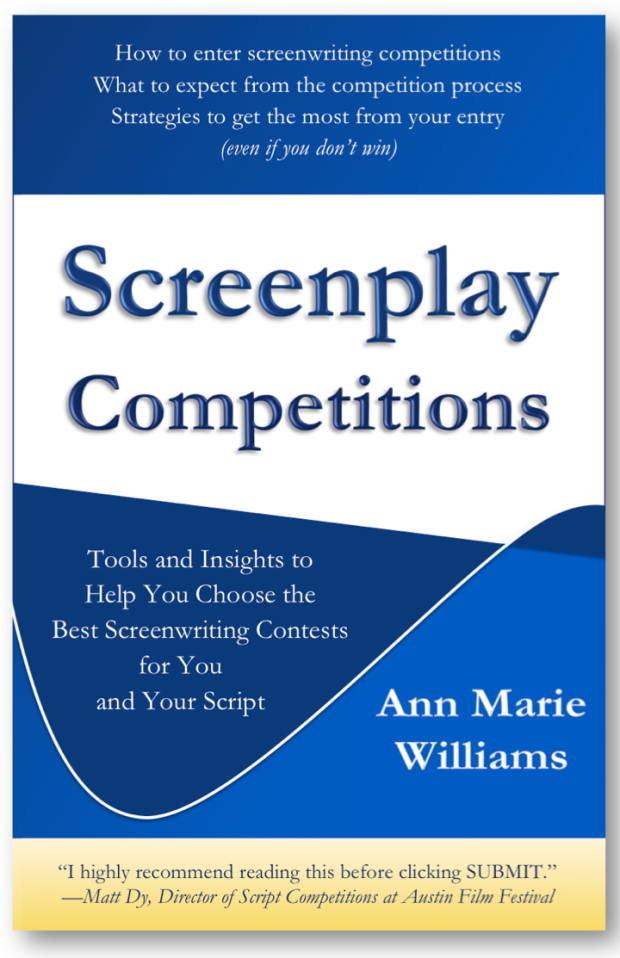Welcome to the official website for Ann Marie Williams and her book Screenplay Competitions: Tools and Insights to Help You Choose the Best Screenwriting Contests for You and Your Script.
This site is devoted to building on that book to help writers get even more out of the screenplay competition process.
Thank you for stopping by!
Endorsements for Ann Marie Williams’ Screenplay Competitions book
“This book offers an invaluable guide into the world of screenplay competitions. And more than that – it shows you ways how these competitions, even if you don’t win, can help you improve your writing.”
—Ken Levine
Emmy-winning writer
Hollywood & Levine
Read the full review on Mr. Levine’s blog: by Ken Levine
“With her hands-on, nuts-and-bolts, information-packed volume, treating an oft-neglected aspect offering strategies to launch writing careers, Ann Marie Williams provides a welcome new addition to the literature.”
—Professor Richard Walter
former Screenwriting Area Head, Associate and Interim Dean
UCLA School of Theater, Film, and Television
“An in-depth and specific guide to how screenwriting contests operate.”
—Dave Trottier
Author, The Screenwriter’s Bible
http://www.keepwriting.com
“Screenplay Competitions is a strikingly thorough guide for anyone interested in pursuing a career in screenwriting. … Very readable and utterly informative.”
—Professor Harry M. Cheney
Chapman University
Dodge College of Film and Media Arts
“I was amazed with the depth in which [Ann Marie Williams] pulls back the curtain and sieves through everything from preparing your script for submission to what judges look for in scripts.”
—Matt Dy
Former Director of Script Competitions
Austin Film Festival
“I think [Screenplay Competitions] is a most valuable text for screenwriting students and anyone else who is interested in pursuing the art and craft of dramatic writing.”
—Professor of Film John Bernstein
Boston University
College of Communication
“The book delivers on everything it promises, breaking down all the things a writer needs to think about in terms of both submission strategy and value for money; it even offers guidance on how to work out your script’s rank and record data, with useful templates in the appendices.”
—Lucy V. Hay
Script Editor
Bang2Write.com
“[Screenplay Competitions] is a great book that is so in depth and provides a lot of guidance. For someone who has never personally entered a screenplay competition, I feel that I would be pretty well prepared to enter one after having read it.”
—Taylor Braun
Film Festival Specialist
Chapman University
Dodge College of Film and Media Arts
Read the full endorsements here
Courses
Screenplay Competitions is suggested reading for UCLA extension course “Get Your Script Contest Ready“




